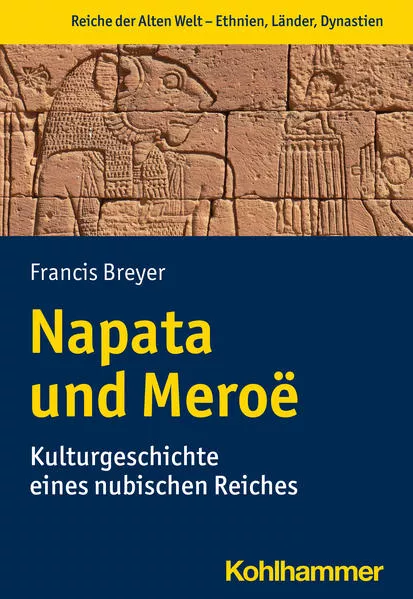
- Publikationen ca: 3
- Buchbewertungen ca: 3
- Fragen & Antworten
Francis Breyer
Dr. Francis Breyer teaches at the University of Bonn. He is one of a handful of researchers working to decipher Meroitic and is one of the top experts on the ancient cultures of northeast Africa.
Napata und Meroë
Um 700 v. Chr. herrschten die Nubier über ein Reich, das von Südpalästina bis in die Tropen Afrikas reichte. Es hatte fast 1000 Jahre lang Bestand und war so mächtig, dass sich Kaiser Augustus einen Frieden diktieren lassen musste. Die meroitische Kultur ist eine der faszinierendsten des Altertums: zwischen "Hochkultur" und Nomadentum, zwischen dem Herzen Afrikas und den Mittelmeerkulturen, zwischen indigenen und äußeren Einflüssen.
Napata und Meroë
Around 700 BCE, the Nubians ruled an empire that stretched from southern Palestine to the tropical regions of Africa. It lasted for nearly 1000 years and was so powerful that even the Emperor Augustus was forced to let it dictate peace terms to him. Meroitic culture is one of the most fascinating in antiquity, set in an intricate balance between ?high culture= and nomadism, between the heart of Africa and the Mediterranean cultures, and between indigenous and external influences.
Napata und Meroë
Around 700 BCE, the Nubians ruled an empire that stretched from southern Palestine to the tropical regions of Africa. It lasted for nearly 1000 years and was so powerful that even the Emperor Augustus was forced to let it dictate peace terms to him. Meroitic culture is one of the most fascinating in antiquity, set in an intricate balance between ?high culture= and nomadism, between the heart of Africa and the Mediterranean cultures, and between indigenous and external influences.


